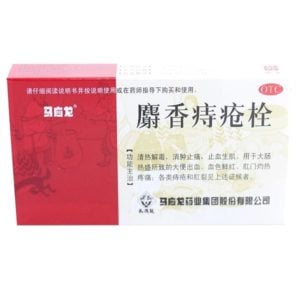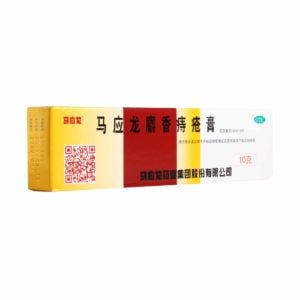Your cart is currently empty!
She Xiang
English Name: musk, navel gland secretions of the musk deer
Pharmaceutical Name: Moschus
Medica Category: Orifice-Opening Herbs
Properties: She Xiang enters the Heart, Liver, and Spleen channels; it is acrid in nature and warm in temperature.
What is She Xiang?:
The Chinese Herb She Xiang is the oily, aromatic substance (i.e. musk) secreted from the navel gland of three different species of musk deer: the dwarf musk deer (Moschus berezovskii Flerov), a native of south and central China; the alpine musk deer (Moschus sifanicus Przewalski), native to the Himalayas and highlands of Tibet; and the Siberian musk deer (Moschus moschiferus L.), native to taiga regions of Siberia, Mongolia, Manchuria, and Korea.
The musk is contained in the caudal gland of the male musk deer; the deer is killed, the gland removed from the animal, and the musk stored in an airtight and lightproof container. It is eventually made into pills or powder for use as medicine.
Traditional Chinese Medicine (TCM) Therapeutic Actions of She Xiang:
She Xiang is extremely aromatic and is used to open the orifices and awaken the shen when consciousness is impaired by bi zheng (“closed disorder”). In this action, it is used in the practice of TCM to address loss of consciousness, epilepsy, seizures, stroke, and convulsions (not an exhaustive list).
She Xiang invigorates blood circulation and opens the channels and collaterals and is used topically to dissipate clumps/palpable masses and reduce swelling of carbuncles, sores, and other swellings that have yet to form open lesions on the skin. It is also added to formula to address amenorrhea caused by blood stagnation.
She Xiang is used (both internally and topically) in trauma wards in hospitals in China to reduce swelling and pain in traumatic/sports injuries. It also helps to regenerate damages tissues/ligature and broken bones in this context.
She Xiang is used to induce labor in stillbirth—not in viable pregnancies, though, as its strong, penetrating properties may injure the fetus.
–safety/clinical notes:
Contraindicated during pregnancy (both internal and topical use).
Dosage levels 60 – 100 mg given as pills or powder with a maximum dosage of 1000 mg.
Use with caution in deficient patients (especially yin deficiency).
According to TCM theory (and knowledge gained from practical experience), a few things need to be said generally about the use of orifice-opening herbs in situations of loss-of-consciousness:
- Loss of consciousness is a serious medical condition requiring immediate medical attention. When using herbs in TCM to address this condition, proper differential diagnosis is essential in order to determine whether the loss of consciousness is due to deficiency (tuo zheng, or “abandoned syndrome”) or excess (bi zheng, or “closed syndrome”). It is also necessary to determine whether the condition is cold or hot. This basic differentiation is then integrated with accompanying complications in the individual pattern of imbalance of the person in distress.
- The herbs in this category consume qi and should be reserved for symptomatic treatment in acute situations (i.e. for very short-term use only). Furthermore, while they can restore consciousness and relieve symptoms when used appropriately, they do not address the underlying pattern of imbalances that caused the acute situation in the first place.
- These substances exert their effects on the central nervous system in nuanced ways:
- Bing Pian (borneol) and Zhang Nao (camphor) stimulate the CNS to increase heart rate, BP, and respiration;
- Shi Chang Pu (acorus rhizome) inhibits the CNS, which explains its use in addressing epilepsy and seizures;
- She Xiang (Moschus or deer musk) regulates the CNS depending on dosage level—low doses stimulate the CNS while high doses inhibit it.
All of this is to say that discussion of this substance’s use in restoring consciousness is intended to be educational. Their practical use is complex/nuanced; furthermore, the situations for the use of these herbs are often serious and/or life-threatening and should therefore be left to trained TCM healthcare practitioners. See Chen and Chen, pp. 815-7 for a more complete discussion on this topic.



